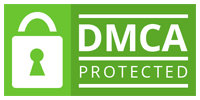The success of any business or organization in today's digital environment depends on its website's visibility in search engine results pages. To keep your website visible to your intended audience as search engine algorithms change, you must keep up with the current SEO practices. The battle for top search engine ranks is only anticipated to heat up. The most up-to-date strategies for boosting your site's rankings in SERPs are discussed in this article. Everything you need to know, from conducting keyword research to executing structural modifications, is covered in detail.
A brief overview of the current SEO landscape
SEO is more complex and competitive than ever because of the rise of internet businesses and the importance of e-commerce. Website owners who want to keep their sites accessible in search results must keep up with the newest changes in SEO, as search engines continually upgrade their algorithms to offer users the most relevant and authoritative results.
Preview of the main sections of the blog post
When you're done reading this blog, you'll have a firm grasp of the fundamentals of SEO and the steps you should take to boost your website's visibility in search engine results. So, let's discover what you need to know to improve your website's SEO!
Keyword Research
Successful SEO campaigns always start with thorough keyword research. Finding out what terms people are typing into search engines to discover goods and services like yours is the first step in improving your site's visibility. Keyword research also teaches you more about your target demographic and helps you produce content that interests and engages them.
Keyword research will remain an essential part of search engine optimization. Solid keyword research is crucial now when there is so much competition for search engine rankings. Various tools and strategies can help you find your site's most relevant and popular keywords.
In recent times, Ahrefs, SEMrush, and the Google Keyword Planner will likely remain three of the most widely used keyword research tools. You can use these tools to find your website's most profitable and relevant keywords by learning more about search traffic, competitiveness, and related phrases.
On-Page Optimisation
By "on-page SEO," we mean enhancing the relevance and visibility of certain web pages to raise their position in search engine results. Because it aids search engines in indexing your site's content and determining its relevance to search queries, on-page optimization is an integral part of any search engine optimization plan.
In recent times, on-page optimization will still be a significant factor in search engine optimization. However, your on-page elements will only be optimized using title tags, meta descriptions, and header tags. Header tags are a great way to organize content and draw attention to the most crucial sections. Title tags and meta descriptions, on the other hand, provide search engines with a brief overview of your page's content.
Off-Page Optimization
Off-page SEO refers to the measures made outside your website to boost its exposure and authority in search engine results. Creating a solid backlink profile is one of the most crucial components of off-page optimization. When other websites link to yours, this is a strong indicator of your site's quality and authority in the eyes of search engines.
Maintaining a good backlink profile will continue to be a significant aspect of SEO. Yet, it's crucial to understand that not all backlinks are equal. To establish a solid backlink profile, you must gain links from high-quality, authoritative sources relevant to your brand and audience.
Technical Optimisation
Technical optimization, an essential part of search engine optimization, involves the technical aspects of your website, such as load time, mobile friendliness, and security. As search engines prioritize user experience and website performance, technical optimization will be an essential SEO tactic.
Minimizing code and image files, activating browser caching, and utilizing a content delivery network (CDN) to send material to consumers more efficiently are great ways to speed up your website. Websites that load quickly benefit users and send signals to search engines about the content's quality and authority.
Content Marketing
Content marketing aims to boost website traffic and backlinks by providing helpful, engaging, and informative content to your target audience. While search engines continue to prioritize high-quality content and user engagement, content marketing will be an integral part of search engine optimization.
Keyword research and identifying themes relevant to your audience and consistent with your business goals are essential to creating high-quality content that generates backlinks and engages your audience. In addition, writing blog articles, making infographics, filming videos, and posting to social media are all part of a content strategy that needs to be planned and implemented.
Local SEO
Local search engine optimization (SEO) is necessary for every business with a physical location to rank higher in local search results. In addition, more and more individuals will use search engines to find local businesses and services, making local SEO increasingly significant.
Emphasizing geographically specific keywords and phrases can improve your website's ranking in local search results. For example, title tags, meta descriptions, and header tags may all be optimized using location-specific keywords, and blog posts and landing pages can be written specifically for a given area.
Analytics and Reporting
Search engine optimisation (SEO) relies heavily on analytics and reporting, which show site owners where they stand regarding search engine rankings and where improvements can be made. Many practical tools will be available for monitoring site visits, keyword positions, and other aspects of SEO.
Website traffic is a crucial indicator for search engine optimization because it reveals how people find and use your site. Analytics tools like Google Analytics help website owners monitor their site's organic search, social media, and paid advertising traffic.
Key Takeaways
Tracking your website's performance by frequently utilizing analytics and reporting tools and keeping abreast of the newest SEO trends and best practices is crucial. This will allow you to see where your site stands and make informed decisions about optimizing it for search engines better.
Call-to-action for readers to implement the techniques and best practices discussed in the post.
Businesses of all sizes need a solid SEO plan to compete in today's internet marketplace. Boosting your website's visibility in search engine results will lead to more visitors, increasing your chances of making a sale and your bottom line.
Thus, do not delay any longer. Now is the time to begin search engine optimization for your website. It will benefit your company in the long run.





Leave a Comment